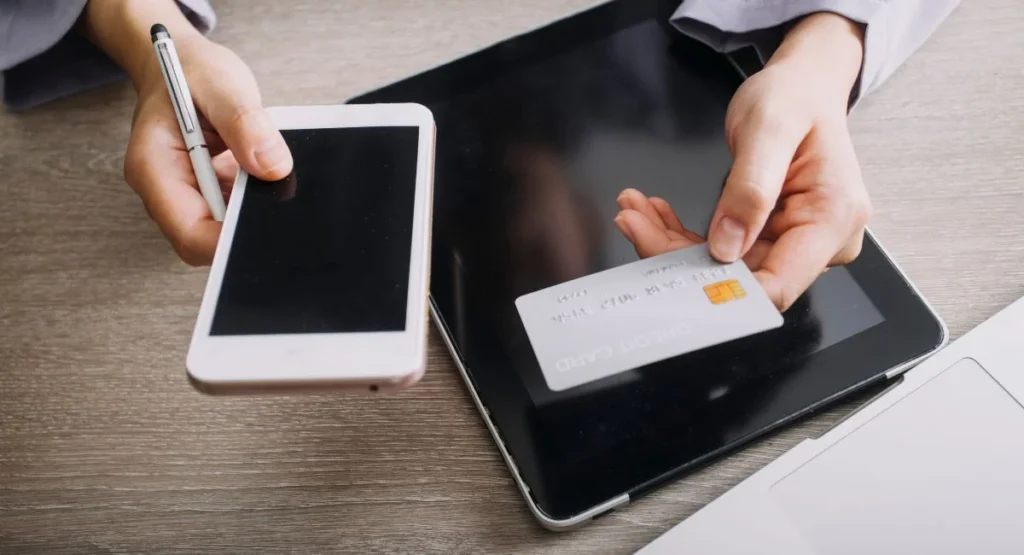In today’s fast-paced world, the way we handle payments has shifted dramatically. Gone are the days of waiting in long lines, fumbling for cash, or dealing with checks. With the rise of digital payment systems, everything has become much more streamlined and efficient. But why is this shift so crucial, especially for clinics in Pakistan? Let’s explore the reasons why digital payment systems for clinics are no longer just a luxury—they’ve become a necessity.
What Are Digital Payment Systems for Clinics?
Before diving into why these systems are essential, let’s first clarify what digital payment systems for clinics entail. Digital payment systems are platforms or software that allow patients to pay for medical services through electronic means. These can range from bank transfers and mobile wallets to credit/debit card payments and online payment gateways.
For clinics, having a seamless, reliable, and secure digital payment system can transform the way they handle financial transactions with patients. These systems ensure that payments are processed quickly, safely, and with minimal human intervention, reducing errors and increasing efficiency.
How Do Digital Payment Systems Enhance Patient Experience?
Patients Expect Convenience—How Can Digital Payment Systems Fulfill This?
The convenience of digital payments cannot be overstated. Patients today are accustomed to online shopping, digital banking, and instant transactions. When visiting a clinic, they prefer the same level of ease and comfort. Traditional payment methods, such as cash or cheque, often lead to longer waiting times and logistical headaches for both the patient and clinic staff.
By implementing digital payment systems, clinics can offer patients a quick, hassle-free experience. Whether it’s paying for a consultation, treatment, or medication, the transaction can happen within seconds. This not only boosts patient satisfaction but also helps clinics stand out in a competitive healthcare environment.
How Do Digital Payment Systems Improve Clinic Efficiency?
Can Digital Payments Streamline Clinic Operations?
One of the most significant advantages of digital payment systems for clinics is the increase in operational efficiency. Traditional payment methods like cash or cheque handling require manual processes, such as counting, depositing, and reconciling payments. These processes are time-consuming and prone to human error.
With digital payment systems, all transactions are automatically recorded and processed, allowing clinic staff to focus more on patient care rather than financial management. Clinics can also reduce administrative burdens by eliminating the need for paper receipts and manual accounting. This leads to quicker check-in and check-out processes, and better overall clinic management.
What Role Do Digital Payment Systems Play in Enhancing Financial Transparency?
Are Digital Payment Systems the Key to Transparency in Clinic Finances?
Transparency is critical in any business, but especially in healthcare. Patients need to feel confident that the fees they are being charged are fair, and clinics must ensure that all payments are accurately recorded. This is where digital payment systems come into play.
By adopting a digital payment system, clinics can offer an easily accessible and transparent view of their billing process. Digital receipts, transaction logs, and real-time financial tracking ensure that patients can see exactly what they are being charged for, which eliminates potential disputes or misunderstandings.
Furthermore, for clinic owners, these systems provide detailed financial reports, making it easier to track revenue, identify trends, and spot any discrepancies. This transparency not only builds trust with patients but also contributes to better financial management within the clinic.
How Can Digital Payment Systems Promote Safety and Security?
Are Digital Payment Systems Secure for Both Patients and Clinics?
Security is one of the top concerns when it comes to digital payments. In Pakistan, where digital literacy is growing but not universal, patients may hesitate to use online payment methods due to security fears. However, digital payment systems have become increasingly secure with the implementation of advanced encryption methods and fraud prevention mechanisms.
Digital payments eliminate the risk of physical theft associated with cash and cheque transactions. For clinics, this means there is less chance of cash mismanagement, theft, or human error. For patients, knowing their sensitive financial information is protected through secure platforms boosts their confidence in the system.
Moreover, many digital payment platforms comply with international data security standards, ensuring that patient information is encrypted and safe. This makes digital payments a much safer alternative to handling physical cash or personal cheques.

Why Are Digital Payment Systems Vital for Growth and Scalability?
Can Digital Payments Help Clinics Grow in a Competitive Market?
As Pakistan’s healthcare market becomes increasingly competitive, clinics need to adopt modern technology to stay relevant and appeal to a wider patient base. The ease and efficiency of digital payment systems are a significant draw for patients, particularly the tech-savvy younger generation.
By offering a wide range of payment options, clinics can cater to diverse patient needs and preferences. This flexibility can be a significant factor in attracting more patients and improving retention rates. Clinics that embrace digital payments are also positioning themselves for future growth, as they can scale operations and adapt to changing market demands more quickly.
How Do Digital Payment Systems Integrate with Other Clinic Technologies?
Can Digital Payment Systems Be Integrated into Existing Clinic Management Software?
One of the major advantages of digital payment systems is their ability to integrate seamlessly with other clinic management software, such as Electronic Health Records (EHR) and Practice Management Systems (PMS). This integration streamlines not only financial transactions but also patient records, appointment scheduling, and medical history management.
For example, when a patient makes a payment through a digital system, the transaction is automatically updated in the clinic’s PMS. This helps clinic staff track patient billing, generate invoices, and maintain accurate financial records—all in one place. Such integrations make running a clinic smoother and more efficient, enabling healthcare providers to focus on providing quality care.
How Do Digital Payment Systems Help Clinics Comply with Regulatory Requirements?
Are Digital Payment Systems Crucial for Compliance with Financial Regulations?
In Pakistan, clinics must comply with a range of financial regulations, including those related to tax collection and reporting. Digital payment systems can significantly ease this burden. With automated transaction logs and digital receipts, clinics can quickly generate reports required for tax purposes or regulatory audits.
By adopting these systems, clinics can ensure compliance with the latest financial regulations, reduce the risk of non-compliance, and minimize the chance of costly fines. These systems also make it easier for clinics to track payments for insurance claims, which further improves financial management.
How Can Digital Payment Systems Contribute to Healthcare Accessibility?
Do Digital Payments Make Healthcare More Accessible to Patients?
Accessibility is a critical issue in healthcare, particularly in developing countries like Pakistan. Clinics that rely on traditional payment methods may inadvertently limit access to care for patients in remote areas or those who don’t carry cash.
Digital payment systems make it easier for patients to pay for services online, no matter where they are located. Patients from rural areas or those unable to visit the clinic physically can still pay for consultations, follow-up appointments, and medications through mobile apps or online platforms. This increases access to healthcare services and allows clinics to serve a wider population.
Conclusion: Why Digital Payment Systems Are Essential for Clinics in Pakistan
In an increasingly digital world, adopting modern payment solutions is essential for any business, especially healthcare. For clinics in Pakistan, digital payment systems provide a wide range of benefits, from enhancing patient experience and improving clinic efficiency to ensuring financial transparency and security.
By embracing digital payments, clinics can stay competitive, scale operations, and meet the growing expectations of tech-savvy patients. As technology continues to evolve, those who adopt digital payment systems will be better positioned to succeed in the healthcare sector.
Ready to Upgrade Your Clinic?
Make your clinic smart, fast, and paperless with SehatPro Clinic Management Software.
Call or WhatsApp for Free Demo & ConsultationFAQs
1. Are digital payment systems for clinics secure?
Yes, digital payment systems are designed with high-security features such as encryption and fraud detection to ensure both patient and clinic data is protected.
2. How can digital payments improve the clinic’s operational efficiency?
Digital payment systems streamline financial processes by automating payment collection, invoicing, and reconciliation, allowing clinic staff to focus on patient care.
3. Do digital payment systems integrate with clinic management software?
Yes, many digital payment platforms integrate seamlessly with clinic management software, allowing for better tracking of patient billing and medical records.
4. Can digital payment systems reduce the risk of financial errors in clinics?
Yes, since digital payments are processed automatically and recorded digitally, they minimize the chances of human error associated with cash or cheque transactions.
5. How can digital payments help clinics expand their patient base?
By offering a variety of payment options, digital payment systems make it easier for more patients to access healthcare services, including those in remote areas or those who prefer online transactions.




